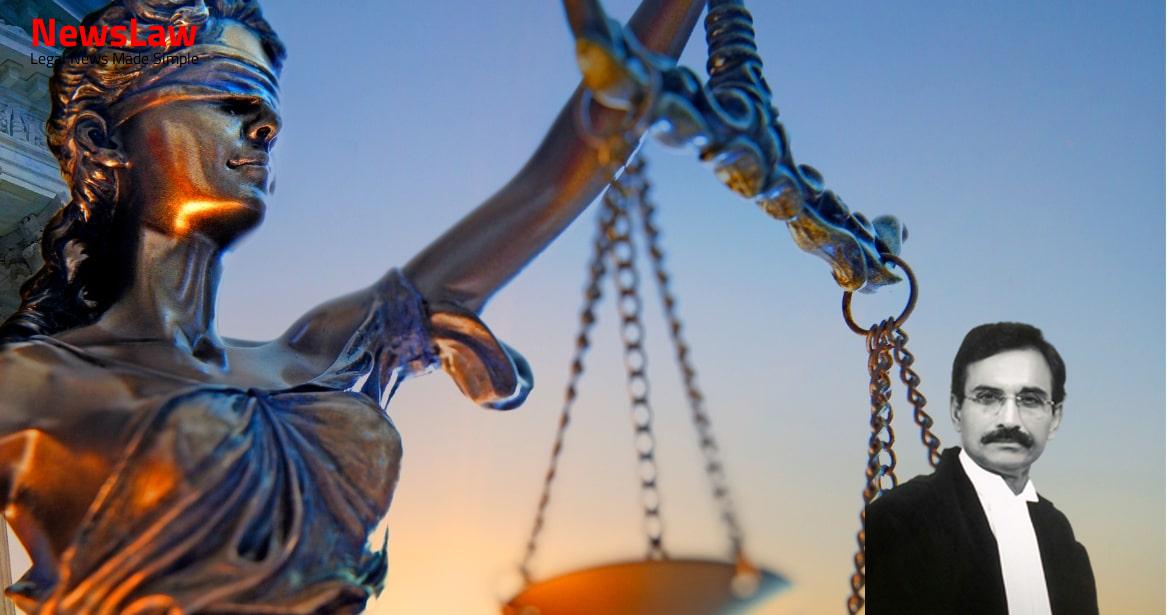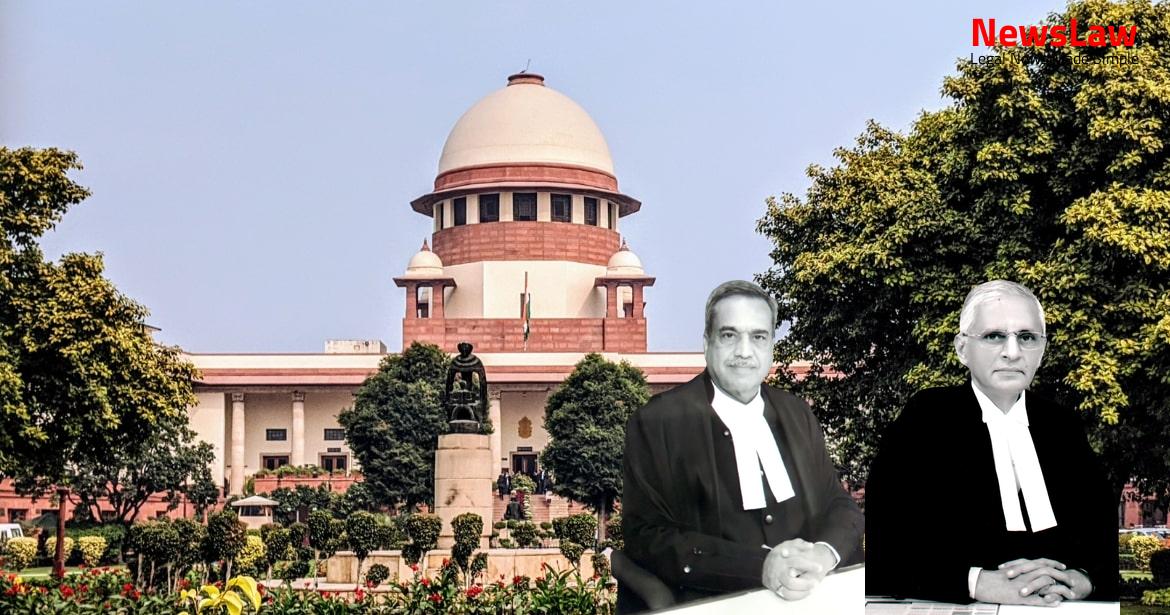Explore a comprehensive summary of the recent Supreme Court of India judgement in the case involving Daffodils and the Government of U.P. This significant ruling sheds light on the crucial principles of natural justice in legal matters. Dive into the details of the case and discover the implications of the court’s decision. #SupremeCourt #LegalCase #NaturalJustice
Facts
- Daffodills, a pharmaceutical supplier, challenged an order by the Principal Secretary, Government of U.P., directing the Medical and Health Department to stop local purchase from Daffodills.
- The order was based on a mistaken assumption that a criminal case was pending against Daffodills, whereas it was actually filed against an erstwhile Director who had no current connection with the company.
- Daffodills had submitted a declaration during the tender process stating no Court Case/Vigilance Case/CBI Case was pending against the firm, and their bid was accepted by the State of U.P.
- Daffodills was asked to match its previous bid to the Tamil Nadu Service Corporation Ltd. for specified drugs, which they contested due to the misunderstanding regarding the criminal case.
- The challenge was based on arbitrariness in the decision not to procure, lack of notice or pre-decisional hearing, and the impact on ongoing supply contracts with various hospitals.
- The High Court dealt with the complaint of breach of principles of natural justice by Daffodils.
- Daffodils’ failure to comply with express terms of the contract and its breach resulted in the State recalling its business through various directions to State Agencies.
- The High Court recalled a previous direction in Writ Petition No 3611 (MB)/ 2011 related to the National Rural Health Mission fund utilization.
- CBI registered a case and filed a charge-sheet against Surender Chaudhary and others after a preliminary inquiry.
- Daffodils claimed that Chaudhary was no longer its Director and that it wasn’t given a hearing before the order.
- The High Court noted that in contractual disputes on policy decisions, the scope of jurisdiction under Article 226 is limited.
- The State Government’s action was deemed not unreasonable or contrary to public interest by the High Court.
Also Read: Legal Analysis of Claim for Loss of Profit in Delayed Contract
Analysis
- The order made by the Principal Secretary on 21.08.2015 was not a blacklisting order but a directive to not procure medicines locally from the appellant.
- The appellant filed a suit in 2014 against finalizing the tender for which it had bid.
- The Allahabad High Court dismissed the writ petition filed by the appellant challenging the rejection of its bid.
- The High Court held that there was no illegality in excluding the appellant from the tender, and the debarring of procurement from the appellant was made after the dismissal of the writ petition.
- No show-cause notice or opportunity was given to the appellant before the order of 21.08.2015 was made.
- The order debarring procurement from the appellant was considered disproportionate as it was indefinite and co-terminus with the lifetime of the criminal case against the accused.
- It was emphasized that no adverse order should be inflicted without affording a minimum opportunity of hearing and prior intimation.
- The High Court’s conclusion justified the Department’s right to regulate its business through various directions.
- The appellant’s argument regarding the resignation of Surender Chaudhary as Director in 2012 was considered invalid due to his close involvement in the company.
- The High Court was criticized for overlooking binding decisions and limiting the scope of inquiry in judicial review of public contracts.
- Surender Chaudhary was charged with various offences by the CBI while acting as Director of Daffodills.
- Fictitious accounts of supply to individuals were created to obtain procurement orders from the State.
- Court case in the concerned clause 14 refers to a criminal case against the firm, Board of Directors, or individual Directors.
- Before taking drastic adverse actions like debarring or blacklisting, the party to be affected must be given an opportunity for hearing and representation.
- Blacklisting prevents a person from entering into lawful relationships with the Government for gains, requiring an objective satisfaction of the relevant authority.
- Fundamentals of fair play demand that the person should be given a chance to represent their case before being blacklisted.
- The deletion of a contractor from the approved list solely based on a vigilance report was deemed arbitrary without following principles of natural justice.
- Before passing blacklisting or debarring orders, parties must be given a hearing and an appropriate reasoned order must be provided.
- The order to discontinue procurement by the State Health Department does not amount to a debarring order.
- The state’s action of not procuring indefinitely based on an assumption of complicity by Daffodils was a violation of natural justice.
- Normally, the court would have quashed the Government of U.P.’s decision and granted a hearing to Daffodils before taking any action.
- Due to the significant time that has passed since the order of debarring Daffodils was made, the court deems it appropriate to grant relief.
- The order directing departments to refrain from local purchase from Daffodils is quashed, and the impugned judgment of the High Court is set aside.
Also Read: Public Declaration Requirement in Marriage under Hindu Marriage Act
Decision
- The appeal of the Respondent No 1 was allowed.
- The judgement was made in the above terms.
- No costs were awarded in this case.
Also Read: OCI Cardholders’ Rights and Retroactive Notifications
Case Title: M/S DAFFODILLS PHARMACEUTICALS LTD Vs. THE STATE OF UTTAR PRADESH
Case Number: C.A. No.-009417-009417 / 2019



